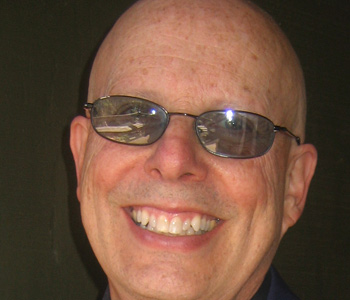
Morality’s Muddy Waters, as the subtitle suggests, worries about ethical quandaries in recent American history. I like my history and morality muddy, so to speak. Rather than a dry philosophical approach, the book looks at morality in action.
This project began five years ago on a gentle evening after viewing Hotel Rwanda, the film documenting genocide. I decided immediately to cease working on a book about American cultural criticism. I was shaken to the core of my being, and I had to do something that would address inhumanity, in its varied forms. I think that Morality’s Muddy Waters achieves this end, although without moral hectoring or absolutes.
I am an historian with a philosophical bent. My book is narrative in nature with a desire to draw from historical research insight into what we are to do at present when faced with perplexing moral challenges.
Too often, we shy away from the concept of evil. But evil demands a voice as a descriptive and analytical term. So that is where I begin. Next, issues as varied as the bombing of civilian areas in the Second World War, the My Lai massacre, and the death penalty are examined for their moral cloudiness.
Some presume that the best way of overcoming moral passivity and evil may be through empathy. As I show in one chapter, empathy can be invaluable, the necessary first step towards moral comprehension and action. Alas, empathy can also lead us astray, as in our decision to invade Iraq.
I hope that after following my narratives of trial and tribulation in matters of morality you come away with more questions than answers. That, it seems to me, constitutes the essence of good history, and the start of better moral thinking.
“Too often, we shy away from the concept of evil. But evil demands a voice as a descriptive and analytical term.”
As an historian, everything I do is anchored in a concern with the past presented in what I hope is a lively narrative. In walking along that path in this book, I believe that various conceptions are critical both for understanding our past and for straining towards a fuller grasp of our present. No easy task.
We know, thanks to just war theory, what is right or wrong, at least in principle or in the abstract: civilian areas are not to be targets, except under the most pressing of circumstances and with especial care about minimizing civilian casualties. But in the face of evolving expectations, conflicting moral ends, and just plain complexity, morals get muddy.
Rather than trying to establish a firm set of moral propositions, my narratives of various events and issues demand that, at the very least, we recognize that moral disputes are often irresolvable, different positions are not only possible but reasonable, and that we need, above all else, to take actions with a willingness to grapple with that moral complexity. The process towards acting in a moral manner is rutted with pot-holes, but it must be traveled in a manner that includes “mature consideration” of the issues at hand.
Considerations of evil also stalk the pages of my book. Can’t we use evil as a descriptive and analytical term despite its elusiveness? How else, for example, can we characterize what happened in the massacre in My Lai? We can, using Hannah Arendt’s twin conceptions of evil as radical and banal, achieve a more tragic and oddly enlightened view of historical events without surrendering morality and analysis.
Looking at John Howard Griffin’s attempt to pass as an African-American in the Jim Crow South in 1959—as recounted in his famous volume, Black Like Me—I began to see past the obvious problems with his black masquerade and presumed willingness to speak for black people. I understood him, in effect, to be trying something valuable—akin to the thought experiment that Thomas Nagel imaginatively captured in his essay, “What Is It Like to Be a Bat?” By dying his skin and passing for black, Griffin was attempting to shed his privileged racial position and distance; by act and empathy, he was seeking, within the context of his time and place, to understand a radically different other. Out of this action, he was able to address brilliantly the problem of moral luck and the contingent nature of racial identity. After all, he was saying, I am still the same, decent white person I was, but for my blackened skin. Why, then, do you offer me a “hate stare” that denies me my humanity? In this manner, he managed, as Malcolm X recognized, to stir the moral consciousness of his white readers to concede that racism was wrong. No small accomplishment within the context of the early 1960s.
We need empathy, that’s for sure. But even empathy gets its feet stuck in the big muddy. While many of us now realize that the Iraq invasion was terribly botched, might the moral imperatives sounded by President Bush and such pro-war liberals as Christopher Hitchens and Paul Berman have been rooted in a sense of empathy for Iraqi suffering? What, then, are we to do in the face of evil, such as Saddam Hussein? Might too much empathy lead to disasters just as too little empathy does?
Does what you have been reading sound vaguely pragmatist and existential? If so, then you are a most discerning reader. My first book was on the American philosopher William James, the father of pragmatism. And I embrace his sense of the contingency of existence and the role that ideas must play in leading us forward. My last book before Morality’s Muddy Waters, Existential America (2003), adopted humanistic existentialism. I find it the best approach to life, although it does bring us face to face with a “dreadful freedom.” This is certainly a burden, but one that may hold back the dangerous torrents of moral certitude.
A book reveals itself in its fullness, in its sweat and swagger. But if you must rivet attention on one thing in this volume then I would hope that it is my overriding sense of struggle.
Struggle with moral issues, I think, is too often absent. We approach challenges—personal and political—with sharply defined strictures, moral laws, and codes of conduct. I’ll be the first to admit that without these baselines we would be adrift, lost in a moral wilderness. But when we face the complexity of events and the muddiness of situations, we have to be more contemplative and self-conscious.
Thinking about things, as Hannah Arendt once remarked, is valuable for stopping action, for holding us back. Now we cannot nor should we always hold ourselves back—to do so would be to jettison any moral action. But by thinking more deeply, we might at least act with a better sense of limitations, of the tragic distance often found between ideal and result. Rather than rushing into a situation, without appreciation for the many shades of morality and irony, we might be more sober and successful when and in how we act.
We can, as was the case with our former president, be blinded by our moral confidence. After meetings with moral heroes such as Russian dissident Natan Sharansky and the Iraqi Kanan Makiya, George W. Bush believed that Saddam Hussein was evil personified. He did feel valuable empathy with the plight of the Iraqi people. Yes, he also had a myopic eye towards his own agendas—finishing off his father’s enemy, establishing greater American hegemony in the region, and erasing the weapons of mass destruction that were presumably in the Iraqi arsenal. But the empathy he did feel for the Iraqi people was real and valuable. Alas, it was abstract empathy—weakly related to the circumstances of the moment, the complexities of Iraqi nationalism and politics, and, most definitely, hobbled by an unreflective confidence that the war would be easily won and that Iraqis would flock to our side.
The same danger of moral absolutism and confidence appeared when Bush was the governor of Texas. He was a firm supporter of the death penalty. While I disagree with the death penalty, I can understand the moral imperative and justness behind retribution. But, once again, certitude cannot be allowed to override complexity; ideology should never trump the singularity of each case. As governor, Bush quickly approved all but one of the death penalty cases brought to him. This is a gross example of moral resignation to absolutes.
Even a quick browse through the varied narratives in my book should drive home my desire to muddy the waters of various situations. A little muddiness may go a long way towards allowing complex moral issues to be discussed in a fuller and less rancorous manner. And it may also force us to reevaluate our presumptions, not to plummet us into moral passivity but to draw us into a range of actions that are colored by a useful sense of hesitancy and sobriety.
“Perhaps at the root of moral evil is the problem of certitude, our willingness to cling tightly to strictures of right and wrong or to embrace our gut feelings without sufficient reflection.”
As I reflect back now on the five years that I spent living with Morality’s Muddy Waters and my original intention of responding to the issues raised by the film Hotel Rwanda, I hold to a belief that I have progressed, albeit in hesitant, baby steps, towards a moral position that has value.
Perhaps at the root of moral evil is the problem of certitude, our willingness to cling tightly to strictures of right and wrong or to embrace our gut feelings. Moral clarity, as philosopher Susan Neiman brilliantly argues, is a wonderful thing but it is also a chimera when it simplifies complexity. We need to accept that doubt and anxiety, muddiness, about our moral posture and actions are positive things.
Theologian Reinhold Neibuhr celebrated this notion of moral modesty in contrast to moral hubris. Read what President Barack Obama, in a blurb on the back-cover of a reissue of Reinhold Neibuhr’s classic The Irony of American History (originally published in 1952), has to say: “I take away [from Niebuhr’s works] the compelling idea that there’s serious evil in the world, and hardship and pain. And we should be humble and modest in our belief that we can eliminate those things. But we shouldn’t use that as an excuse for cynicism and inaction.”
This is, I now believe, a reasonable way of thinking about and responding to the horrors that darkened the Rwandan landscape. Not a morality that unfurls all-too-predictable banners of certitude and passion. Rather a morality that might help us put on boots of moral depth to wade into the moral muddiness that confronts us daily.


George Cotkin is a professor of history at Cal Poly, San Luis Obispo. Besides Morality’s Muddy Waters, featured in his Rorotoko interview, Cotkin has authored a number of other books, including William James, Public Philosopher (1990), and Existential America (2003). He has also just completed Dive Deeper: Journeys with Moby-Dick—a book with 138 short chapters, each one relating to a theme, phrase, or idea in one of Melville’s chapters of Moby-Dick. Right now he is starting a collective biography of James Baldwin, Leonard Bernstein, Robert Lowell, Norman Mailer, and Susan Sontag.